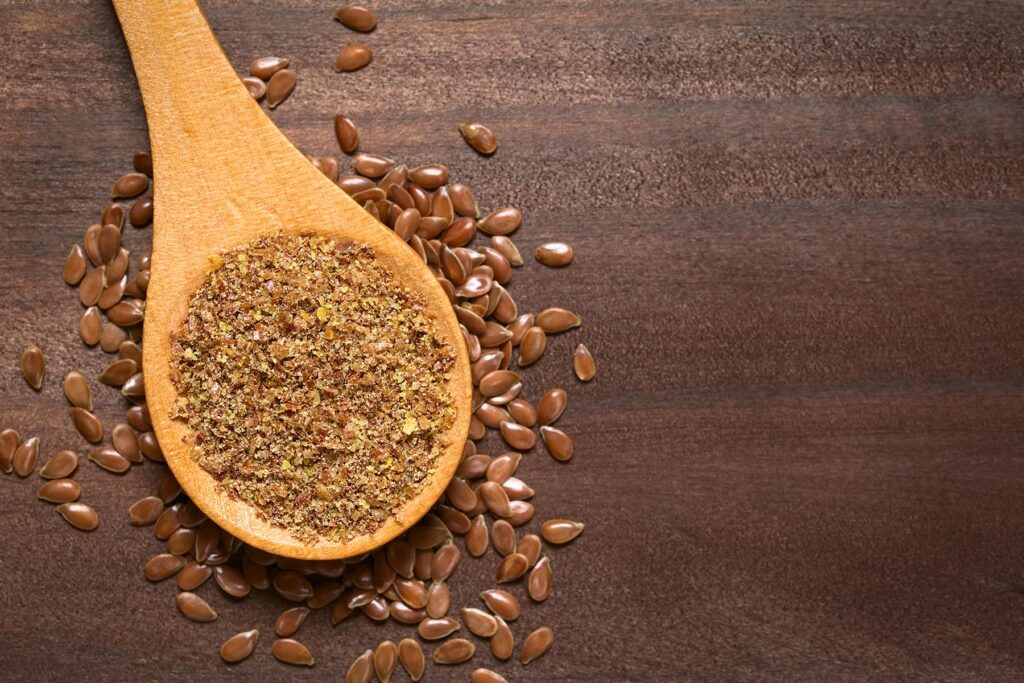When it comes to catering to horses, owners may want to consider adding flaxseed to the horse’s diet. Flaxseed can have a beneficial impact on the horse’s health, improving their coat and providing essential vitamins and minerals.
Understanding what flaxseed is and how it should be included in the diet of a horse can help owners make sure that their horse is getting the most out of the feed.
What is Flaxseed?
Flaxseed is a type of seed derived from the flax plant, which is native to North America and Eurasia. The seeds are small and have a nutty flavor, but they are full of healthy fats, proteins, and other essential minerals and vitamins. These small seeds can be ground up and mixed with hay and other feeds for horses, or if fed whole, they must be cooked to break down the hard, indigestible hull.
Flaxseed is also a great source of dietary fiber, which can help to improve digestive health. It is also a great source of omega-3 fatty acids, which are essential for healthy brain and heart function.
Nutritional Benefits of Feeding Flaxseed to Horses
Flaxseed is an excellent source of energy for horses. The high-fat content of the seed provides plenty of energy for horses. As well as this, flaxseed is high in dietary fiber and is richer in omega-3 fatty acids than any other plant-based source. Overall, flaxseed contains an impressive range of vitamins and minerals, including magnesium, selenium, zinc, and vitamins A and E, which are especially important for equine health.
Flaxseed is known to have a positive impact on horses’ coats and skin. Since it is high in omega-3 fatty acids, it stimulates hair follicles and helps to reduce skin irritations such as dermatitis. It can reduce itching caused by allergies and insect bites. Flaxseed is also rich in Essential Fatty Acids (EFAs), which must be provided in the diet, and for horses that are prone to inflammation, flaxseed can also be beneficial as it contains anti-inflammatory properties. Horses with metabolic issues such as Cushing’s Disease or Insulin Dysregulation benefit from flaxseed, as a source of phytonutrients, and for those horses that need to avoid excess non-structural carbohydrates.
Flaxseed is also known to improve digestion in horses. The high fiber content helps to keep the digestive system functioning properly and can help to reduce the risk of colic. The omega-3 fatty acids in flaxseed can help to reduce inflammation in the digestive tract, which can help to improve overall digestive health.
How Much Flaxseed Should Be Fed to Horses?
Due to its high energy content, feeding too much flaxseed to horses can result in them becoming overweight or even obese. As a general guideline, no more than 2.5% of the total feed should be made up of flaxseed, with no more than 5 lbs per day per horse being fed. It is important for owners to monitor their horses’ condition when introducing flaxseed into the diet and adjust the quantity accordingly.
Flaxseed should be ground before being fed to horses, as the whole seed is difficult for them to digest. Flaxseed should be stored in a cool, dry place, as it can become rancid if exposed to heat or moisture. Ensure that the flaxseed is free from mold or other contaminants, as these can be harmful to horses.
How to Feed Flaxseed to Horses
Flaxseed can be fed to horses, either whole or ground. When feeding it whole, it is important to understand the hull or seed coating is indigestible and must be heat treated, i.e. cooked, to allow proper digestion of the whole flaxseed. Feeding ground flaxseed is often the better, more convenient option. For this, it is best to use a blender or food processor to grind up the seeds into a fine powder. It can then be stirred into feed or hay, or sprinkled on top.
When feeding flaxseed to horses, it is important to monitor their intake. Too much flaxseed can cause digestive issues, so it is best to start with a small amount and gradually increase it over time. Take care to ensure that the flaxseed is free from mold or other contaminants, as they can cause health issues for the horse.
Potential Side Effects of Feeding Flaxseed to Horses
Flaxseed is generally safe to feed to horses in measured quantities. Due to its high-fat content, flaxseed should not be used to replace forage or hay in the horse’s diet.
Flaxseed should also be fed in moderation, as too much can cause digestive upset and colic.
Finding the Right Feed for Your Horse
When looking for feeds that contain flaxseed, look for products that are specifically formulated for your horse. Many feeds contain flaxseed, but not necessarily in amounts that are suitable for horses. When deciding on a feed, consider the nutritional needs of your horse and select one that meets their specific needs.
Consider the type of flaxseed used in the feed. Some feeds may contain ground flaxseed, while others may contain whole flaxseed. Ground flaxseed is easier for horses to digest, while whole flaxseed will pass through the horse’s digestive tract without being utilized.
Flaxseed is an excellent source of nutrition for horses and can help improve the condition of their coat and skin. When introducing flaxseed into the diet of a horse, follow recommended guidelines on quantities and not exceed them. Feeds specifically designed for horses should also be chosen in order to ensure that all the nutritional needs of the horse are met. Monitor the horse’s health and condition when introducing flaxseed into their diet. If any adverse reactions occur, it is best to discontinue use and consult a veterinarian. Flaxseed should be used within a few months of purchase to ensure the best quality.


